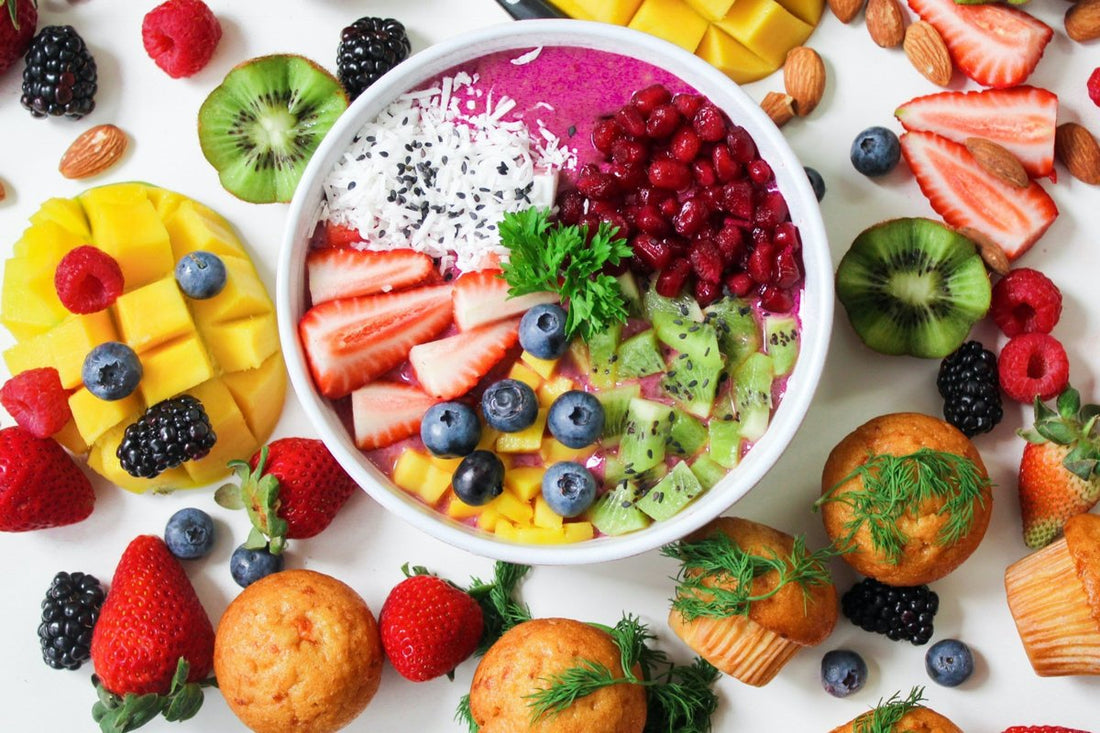
TWO ISLAMIC GUIDANCES ON EATING: SIMPLE. POWERFUL. EFFECTIVE!
Share
As we know it, Islam is the perfect way of life. In it, we have guidance for all our matters, from the simple things to those life-changing decisions. Islam is a religion that cherishes ease and simplicity, and its guidance reflects this – nothing in Islam is impossible to follow.
Allah subuhanawuta’la has even extended His beautiful guidance on matters of eating and drinking. Summarising the Islamic guidelines on eating into two sentences, we see what Islam has to say on the matter;
- Eat what is halal and good, i.e. healthy for you
- Eat moderately (eat until 70-80% fullness)
#1: Eat What is Halal and Good
In the Qur’an and Sunnah, we are encouraged to eat foods that are rich in ‘the good stuff’; vitamins, minerals, nutrients etc.
We are also told of the foods we cannot eat; the sort that have elements of which are harmful to our bodies. Allah subuhanawuta’la says: “O mankind, eat from whatever is on earth [that is] lawful and good and do not follow the footsteps of Shaytān. Indeed, he is to you a clear enemy.” [Al-Quran 2:168].
In another sūrāḥ, Allah subuhanawuta’la says: “So eat of the lawful and good food which Allah has provided for you, and thank the bounty of your Lord if it is Him you serve.” [Al-Quran 16:114]
As you can see, Allah subuhanawuta’la goes above and beyond simply mentioning that the food we ingest must be lawful. He, subuhanawata’la, stresses the word ‘good’, so we can understand the importance of eating halal food that is also of nutritious benefit to us. So, in this context, good food actually means healthy food. This implies that, in the court of Allah subuhanawuta’la, eating well and healthy is as crucial as eating halal food.
So, the next time you search for “halal” food, also make sure it’s “good” food, i.e. healthy food!
Through His infinite mercy, Allah subuhanawuta’la has made all foods that are good for us, permissible, while prohibiting foods that are more or less harmful to us.
#2: Eating Moderately
The Arabs say, “the stomach is the home of disease, and restraint is the basis of the remedy.” Clearly, eating way more than we need to, is the story behind many modern diseases.
Our beloved Prophet (PBUH) said, “The son of Adam does not fill any vessel worse than his stomach. It is sufficient for the son of Adam to eat a few morsels to keep him alive. If he must fill it, then one-third for his food, one-third for his drink, and one-third for air.” (Al-Tirmidhi – saḥiḥ by al-Albaani)
To understand this hadith, we must approach it comprehensively. To do this, we have to take into consideration many other ahadith on eating. Without going into too much depth, allow me to summarise the amount of food, per day, that is permissible in Islam.
- Up to 70-80% of fullness is the maximum recommended measure of food and drink in Islam. Occasionally, we are allowed to fill our stomachs to 100%, but anything beyond this then becomes a sin. Overeating is considered a sin in Islam. And Scholars of Islam use this ayah as evidence to that: “Eat and drink but be not excessive. Indeed, He does not like those who commit excess.” [AlQuran 7:31]
- Islam does not trouble itself setting rules on how often we are allowed to eat. However, if you eat until you are 70-80% full and your body needs four to five meals a day, then this is fine. Provided that:
- You eat to take care of your body and not to cause any harm to it, either through overeating or starvation.
- The amount of food you eat gives you the strength to carry out your day-to-day activities and ‘ibadaḥ, without leaving you too tired or too hungry.
It is also important to understand that overeating has the potential to harm not only your body but also your overall well-being and spirituality. Overeating can also make you:
- lethargic and lazy
- sleep more
- be less productive
- waste more time
- have a shorter life span, bi’idnillah
- be heedless of Allah (May Allah protect us from this)
In fact, the Prophet (PBUH) attributed overeating to be a characteristic of a non-Muslim! “A believer eats in one intestine (is satisfied with a little food), and a kafir (unbeliever) or a hypocrite eats in seven intestines (i.e. overeats).” (Sahih Bukhari)
Think this through – it is indeed a wake-up call for all of us. And remember this: every time you eat to 70-80% fullness, you are fulfilling a characteristic of a Mu’min! Subhanallah!
Extravagance is Condemned
Lastly, a word about extravagance in food: there is no place for it in Islam as Allah condemns everyone who is extravagant, even in permissible things. Allah says: “Eat and drink but be not excessive. Indeed, He does not like those who commit excess.” [Al-Quran 7:31]. This ayaḥ is explicit in warning us against being extravagant, by overeating.
Bear in mind that when it comes to eating better, less is undoubtedly more. Looking at the life of the Prophet (PBUH), we see this, for he was a minimalist when it came to eating. He ate occasionally until he was slightly full, but never overate. Without a doubt, the Prophet’s (PBUH) way of eating is worth following because his way of life was perfect, and it indeed epitomised Islam.
